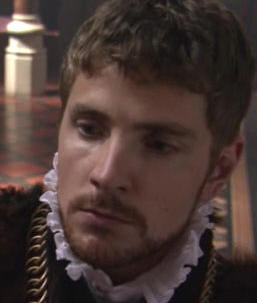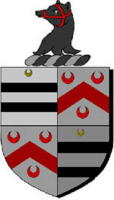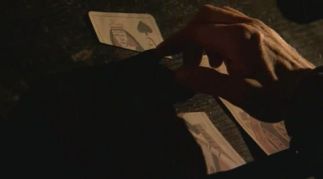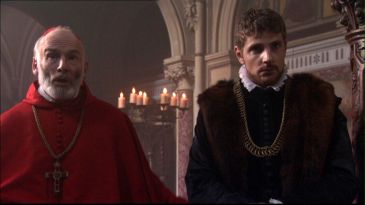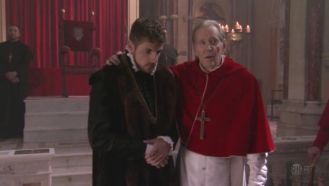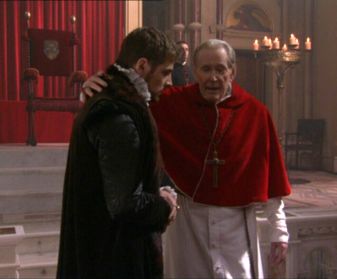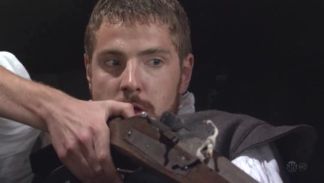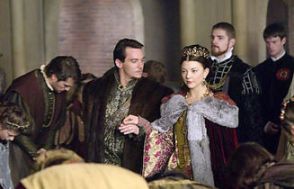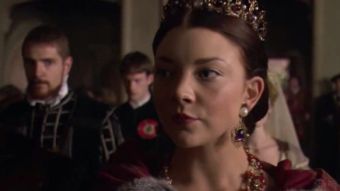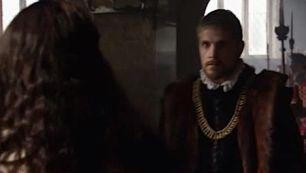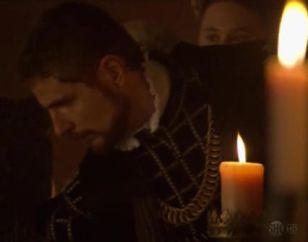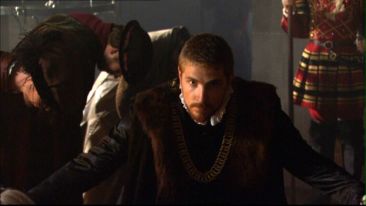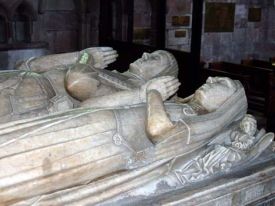William Brereton
Jump to navigation
Jump to search
UNFORGETTABLE CHARACTER QUOTES
DEFINING EPISODES | MEMORABLE SCENES
PHOTOS
Sir William Brereton of Malpas as played by James Gilbert
| | |||||
| born - date unknown - executed May 17, 1536 by order of Henry VIII Character's backstory: *Although an actual historical character, the series has totally fictionalized this character. William Brereton was not a Jesuit and was not commissioned by the Pope to assassinate Anne Boleyn. He also never confessed to adultery with the Queen. He was probably collateral damage when Cromwell moved against the Boleyn Faction and decided to get rid of him in the same coup. Historical backstory: William was the 7th of 9 sons and had to find his own fortune in the world rather than rely on his inheritance. William's family was prosperous landed gentry, seated in Cheshire in Northern England. His father had enjoyed substantial favor from the crown, but had little to give to his younger heirs. Like four of his brothers (four others became priests), William entered royal service and by 1524 was a groom of the king's Privy Chamber. William married in 1529 to a widow, Elizabeth Savage, who was a second cousin to Henry VIII which improved his status and his connections to the crown. As a result of his marriage, he received 36 offices in Cheshire and North Wales. After his father's death, William received the office of chamberlain of Chester thanks to his ties with the king. In 1530, "William Brereton, a groom of the Privy Chamber and Thomas Wriothesley (Risley in the series), a member of the royal secretariat, were given the task of obtaining the signatures of noblemen and courtiers for a petition to the Pope, urging him to grant the King an annulment [of his marriage to Katherine of Aragon] without further delay" - Alison Weir's King Henry VIII and his court. In 1536, William was one of the five men (George Boleyn, Mark Smeaton, Henry Norris & Francis Weston) who were accused of adultery and conspiracy with Queen Anne Boleyn. Cromwell claimed that the queen had solicited William for sex on November 16, 1533 and the act took place on the 27th. In retrospect, this is highly unlikely, since Anne was still in seclusion after having given birth to Elizabeth in September (Eric Ives). He was not a prominent courtier and was an older man in the background of the Boleyn faction. Despite the dubious nature of the claims made against him, he was arrested on May 4th during a jousting tournament in Greenwich in which William, as the story goes, picked up the token handkerchief of Queen Anne and in doing so set off the king's jealous rage. William Brereton was found guilty of high treason and beheaded at Tower Hill on May 17, 1536. Historian Eric Ives claims that the true reason William Brereton was implicated in the conspiracy is because of <a class="external" href="http://www.brereton.org/professor_eric_ives.htm" rel="nofollow" target="_blank">Cromwell's interest</a> in Brereton's lands in Wales and Northern England. Gentility: 7th son of Sir Randle Brereton of Malpas Hall Position: By 1521 he was a groom of the King's chamber, from 1524, groom of King Henry VIII's privy chamber and Chamberlain of Chester. In reward for his work for the King, Brereton gained many grants in Cheshire and the Welsh Marches. These eventually brought him more than £10,000 a year. (a veritable fortune in Tudor times). Personality type: ambitious social climber, Using his place at court, he had secured a virtual monopoly of royal appointments in Cheshire & Wales. Signature look: Endearing trait(s): self-made man, loyal friend and servant to the King. He presented Anne Boleyn with the gift of a greyhound named Urian. Annoying trait(s): there's no telling what he'll do or who he'll betray to get ahead. Scandals: He had managed to get some trumped up charges against a Flintshire gentleman named Eyton who Cromwell had tried to save but failed which resulted in the hanging of this gentleman. Brereton hanging an enemy on a flimsy charge of felony and then being executed himself on a flimsy charge of high treason himself is ironic.
Click EasyEdit to update this page! (Don't see the EasyEdit button above? <a href="../#signin" target="_self">Sign in</a> or <a href="../accountnew" target="_self">Sign up</a>.) | The cause whereof I die, judge not. But if you judge, judge the best. ~ Brereton's last words "Brereton farewell, as one that least I knew. Great was thy love with divers as I hear, But common voice doth not so sore thee rue As other twain that doth before appear; But yet no doubt but they friends thee lament And other hear their piteous cry and moan. So doth each heart for thee likewise relent That thou givest cause thus to be dead and gone." ~ A verse from Thomas Wyatt's poem - a eulogy to those who were executed along with Anne Boleyn:
| ||||
| ......William Brereton was one of those people appointed to look after Henry VIII in this very private suite. He’s one of about a dozen people in all. Now, that's terribly important, because it meant that he was rubbing shoulders with Henry VIII all the time by virtue of his job. Technically, his job was a fairly lowly one. For instance, he was supposed to warm the King's shirt in the morning before the King put it on. But don't think that was a menial job in 16th century eyes, because in the 16th century people thought that a job was posh or humbling, depending not upon what it was but upon who it was done for. So the most important - this is starting to get vulgar, I do apologize - the most important person in the privy chamber is the chap who looks after the King's lavatory, and who actually attends him when he goes, and sees that everything is all right. Now, he is called the Groom of the Stool. You'll sometimes see that written later on as the Groom of the Stole, as though he was wearing some kind of garment, but it actually means the privy. And when a King died, one of the perks of being the Groom of the Stool was that you were given all the King's privies, chamber pots and all. And when Henry VIII died, there were six commodes, which the Groom of the Stool went off with. So the fact that William Brereton warmed the King’s shirt doesn't mean that he's nothing but somebody who sweeps the floor and dusts the sideboards. The truth is, you see, that because he is so close to the King, it's like being on the personal staff in the White House. And so you've got an enormous possibility of getting influence, and you've got an enormous possibility of being used by the King for jobs. It's the way in which the King gets done what he wants without having to go through the machinery, just the same way that I think is true in the White House today. So, you're able to influence the King, and you're able to do important jobs. And we've got a description of William Brereton doing one of these important jobs. That again is very rare, a description like this. But in 1530, the King is trying to get a letter to send to the Pope, asking the Pope to break the marriage that he's got with Catherine of Aragon. And so the King says, and they all decide, "We'll get all the important people in the country to sign a letter going to the Pope, and saying the whole of England wants you to do this." And William Brereton was the chap who was given the job of collecting the signatures. We know that he was paid 40 pounds in advance - that's a lot of money - and we know that he bought a large box, and he bought a lot of sheepskin, with the fleece on, to wrap around the document so that the seals didn't get damaged. The document itself now is in Rome, because it was sent off to the Pope, you see. So we've actually got the document, with the box, and with the sheepskin. We've actually got the document that he toted around England, in the Vatican archives in Rome." For more on this lecture click : <a class="external" href="http://brereton.org/professor_eric_ives.htm" rel="nofollow" target="_blank" title="Brereton Family website - lecture by Historian Eric Ives">Brereton Family website - lecture by Historian Eric Ives</a> |
UNFORGETTABLE CHARACTER QUOTES
|
DEFINING EPISODES | MEMORABLE SCENES
|
PHOTOS
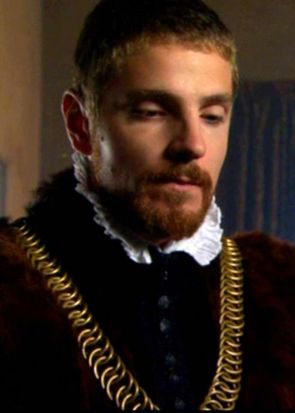 | 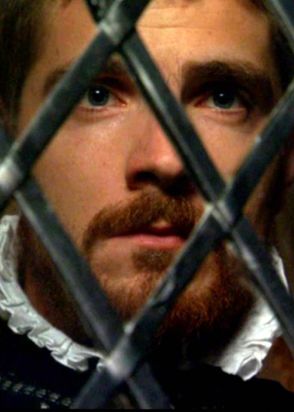 |
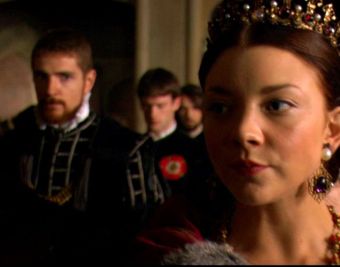 | 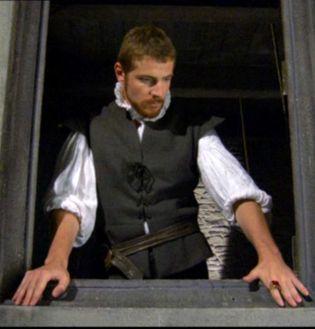 |
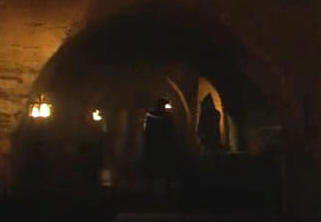 | |
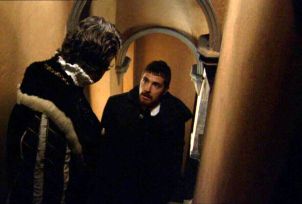 | 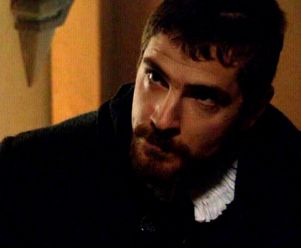 |
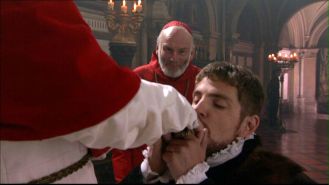 | |
| | |
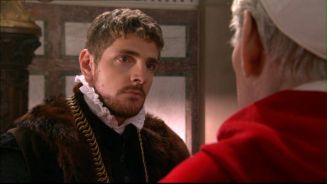 | 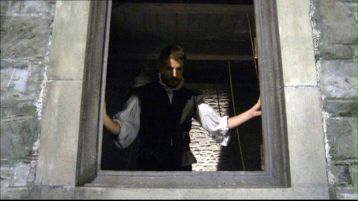 |
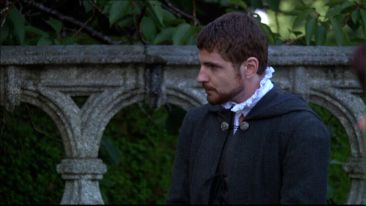 | |
| William Brereton stands behind Anne | |
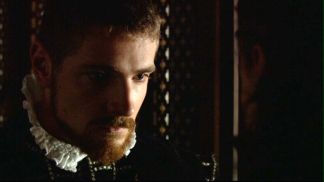 | 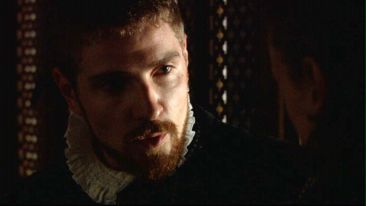 |
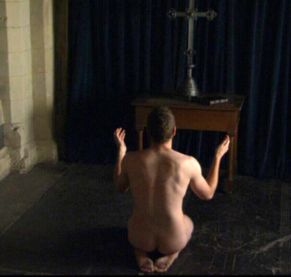 | 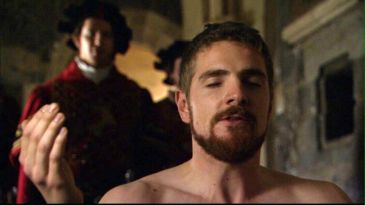 |
 | 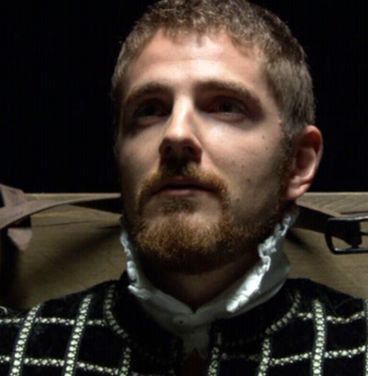 |
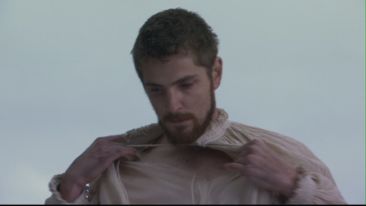 | |
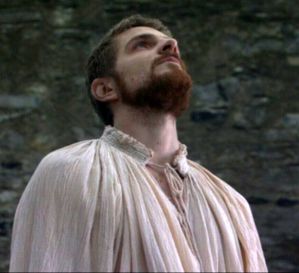 | 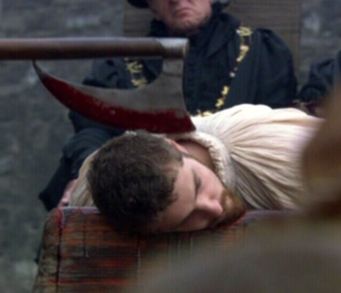 |
| | 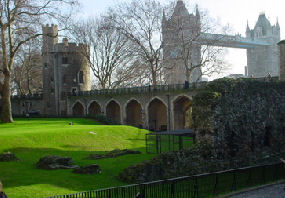 Tower Hill where Brereton and four others were executed May 17, 1536 |
